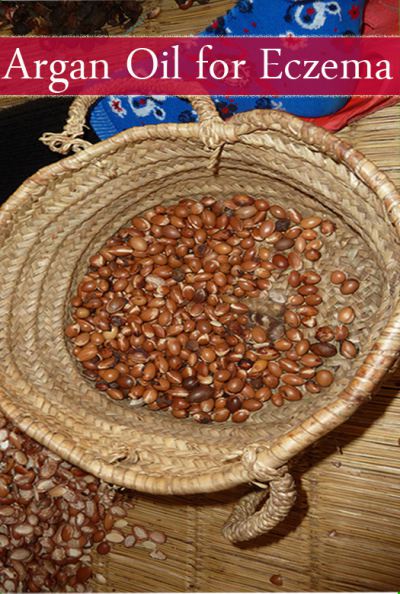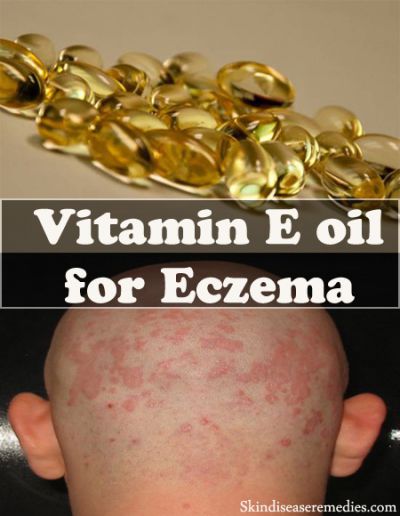
Why use argan oil for eczema, when there are excellent steroid creams?
Because innate ingredients like argan oil is packed with essential nutrients that your skin needs. Unlike steroid creams, regular application of these recipes will not strip natural moisture from your face.
What Causes Eczema?
Commonly known as atopic dermatitis, eczema results in dry itchy skin. Not just burning sensation, these patches makes you embarrassed. It’s very difficult to resist scratching in public places. (1)
Steroid creams prescribed by dermatologist show excellent results, but after few days again itching cycle commence. Unfortunately, mere cause of this ailment is unknown. However, irritants can trigger itching and then lead to dry patches.
Eczema irritants can be food, clothes, creams or objects.
Eczema Cream or Home Remedies?
About 31.6 percent of people in US alone are affected by this chronic skin ailment. (2)
Natural essential oils like argan oil, rosemary oil and lavender oil are packed with moisturizing, antibacterial, anti-inflammatory properties.
Apart from this, vitamins residing in these natural ingredients enhance collagen production and fasten the healing process.
I agree that natural remedies take time, but they treat the skin disorder from the root. Let me confess this, there is no permanent treatment for eczema and when I say treatment, this mean that it will reduce symptoms of eczema flare-ups.
Don’t lose hope. Because of its innate properties your skin will be thankful if you massage argan oil on it.
Also read: Is Almond Oil Good for Eczema?
Is Argan Oil Good for Eczema?
Dry skin is the main culprit to trigger eczema flare-ups. When your skin lost its natural protective layer, irritants invade and habitat resulting in infection.
National Eczema Society of UK states that keeping the skin well hydrated and supple is the cornerstone of managing eczema.
- Emollient activity of argan oil effective produce oily layer over the skin, which helps to soothe itchy patches.
- Antibacterial properties housed in this innate remedy restrain allergens, irritants and bacteria from penetrating into the skin.
- Anti-inflammatory activity of argan oil reduces inflammation on blisters and relieves pain or burning sensation. It also restrains future break-outs, because it doesn’t clog skin pores.
- Vitamin E promotes cell regeneration and thus helps to reduce dry eczema patches.
- Vitamin A and E enhance collagen production and improve elasticity of the skin. Regular application will lighten scars and improve skin tone.
- Because of its assorted nutrients, you can use argan oil over face, hair and to treat such chronic skin ailments. This anti-aging oil can bring a huge impact on your face.
- It exfoliates dead cells and impurities from the skin.
Note: Argan oil can treat eczema effectively when you stay away from irritants and practice a healthy lifestyle.
How to Use Argan Oil for Eczema?
Impurities, dead cells and bacteria are piled over the skin. You must initially cleanse them using water or natural cleanser. If you’ve inflamed flare-ups, then use cotton ball dipped in water to remove impurities.
#1. Argan Oil and Lavender Oil
Lavender essential oil is renowned for its aromatic abilities. Apart from this, antiseptic, anti-fungal and antibacterial properties residing in lavender oil can effectively treat eczema.
Topical application of this essential oil can reduce inflammation on your face.
- Mix 1 tbsp of argan oil with 2-3 drops of lavender essential oil.
- Dilute this solution with 1teaspoon of distilled water to avoid irritation.
- Wash the affected skin with water and pat dry.
- Dip cotton in argan oil and lavender oil solution and apply gently on eczema affected skin.
- Allow it to dry naturally for 15-20 minutes and then rinse it off with water.
- Night is the best time to apply this face mask. Rinse it off in the morning.
#2. Argan Oil and Geranium Oil
Packed with soothing abilities geranium oil can hydrate dry patches of eczema and its anti-inflammatory ability can reduce inflammation.
- Mix 2 tbsp of rose geranium oil with 5 tbsp of argan oil.
- Depending on your skin increase or reduce the amount.
- Apply this obtained face mask on prewashed face.
- Allow it to dry naturally for 15-20 minutes and then rinse it off with water.
#3. Avocado Oil, Lemon and Argan Oil
There are few cases where consuming avocado triggered eczema flare-ups. So, it’s better to patch test on your skin before applying avocado oil.
According to researchers eczema affected people have low levels of fatty acids. So, topical application of avocado oil, which is filled with fatty acids, can reduce eczema flare-ups. (3)
Antibacterial, antiseptic and anti-inflammatory abilities in lemon juice are known to reduce skin ailments such as eczema, psoriasis and acne.
- Mix 1 tbsp of avocado oil with 2 tbsp of argan oil and 2 drops of lemon juice.
- Stir the solution thoroughly and then apply it on prewashed face.
- After 15-20 minutes, rinse it off with water.
#4. Rosehip Essential Oil and Argan Oil
Rosehip oil is also packed with anti-inflammatory property that is known to reduce eczema inflammation.
Vitamin A and C housed in rosehip oil can enhance collagen production. Topical application of this face mask will help to fasten the healing process.
- Mix 1 tbsp of rosehip oil with equal amount of argan oil.
- Stir well and apply it on prewashed face.
- Allow it to dry naturally for 15-20 minutes.
- Rinse it off with water and pat dry.
#5. Honey and Argan Oil for Eczema
Raw honey includes antibacterial, anti-inflammatory and humectant abilities that can effectively treat eczema.
- Mix 1 tbsp of oat flour and 1 teaspoon of honey with few drops of argan oil.
- Apply this obtained face mask on prewashed face.
- Rinse it off after 15-20 minutes.
#6. Argan Oil and Egg White
Sticky nature of egg white helps to removes flakes of dry skin and other impurities. Soothing property packed in egg white can help to reduce inflamed eczema.
- Mix 1 egg white with argan oil.
- Stir well and then apply it on eczema affected skin.
- Let it dry for 15-20 minutes.
- Rinse it off with water.
#7. Yogurt and Argan Oil
Yogurt is filled with Probiotic bacteria that are known to boost immune system. A journal published in 2007 states that Probiotic bacteria can guard from allergens.
However, few may experience adverse reaction. It’s safe to patch test before applying it.
- Mix 1 tsp of yogurt, 2 drops of lemon, 1 tsp of honey and 1 tbsp of argan oil.
- Stir the solution thoroughly and apply it on your face.
- Leave it to dry naturally for 15-20 minutes.
#8. Cucumber and Argan Oil
Cooling and healing abilities of cucumber are prominent. Anti-inflammatory properties housed in this ingredient can reduce burning sensation on eczema affected skin.
- Mash ½ cucumber to obtain smooth paste.
- Mix 1 tsp of argan oil and then through mix the mask.
- Apply this paste on eczema flare-ups.
- Allow it to dry for 20 minutes.
- Remove the face and wash the skin.
#9. Moroccan Argan Oil
To reap all listed benefits of argan oil, beauty experts recommend choosing pure argan oil. Moroccan argan oil is one such type that can effectively reduce this chronic ailment.
If you’ve sensitive skin, then you can dilute argan oil with distilled water
#10. Coconut Oil and Argan Oil
Hydrating property of coconut oil can reduce itching and dry skin. Fatty acids in coconut oil help to nourish skin.
Antibacterial and anti-inflammatory agents in pure coconut oil can fight eczema triggering bacteria and reduce burning sensation.
Related: How to use coconut oil for eczema?
Where to Buy Argan Oil?
Take organic argan oil from local store and apply over affected part using cotton ball. Let it dry and rinse it off with lukewarm water in the morning.
You can blend other carrier oil like coconut oil or jojoba oil with argan oil.
While nutrients in argan oil treat eczema, you must hydrate your skin from inside by drinking 7-8 glasses of water, include vitamin rich food and avoid foods that can trigger itching. Clothes, metals and chemical filled cream can irritate your skin. Stay away from them.
Avoid scratching.
It’s not easy, but you must resist. It not only ruins your skin texture, but spoils your social life.
Conduct a patch test before trying argan oil for eczema.



